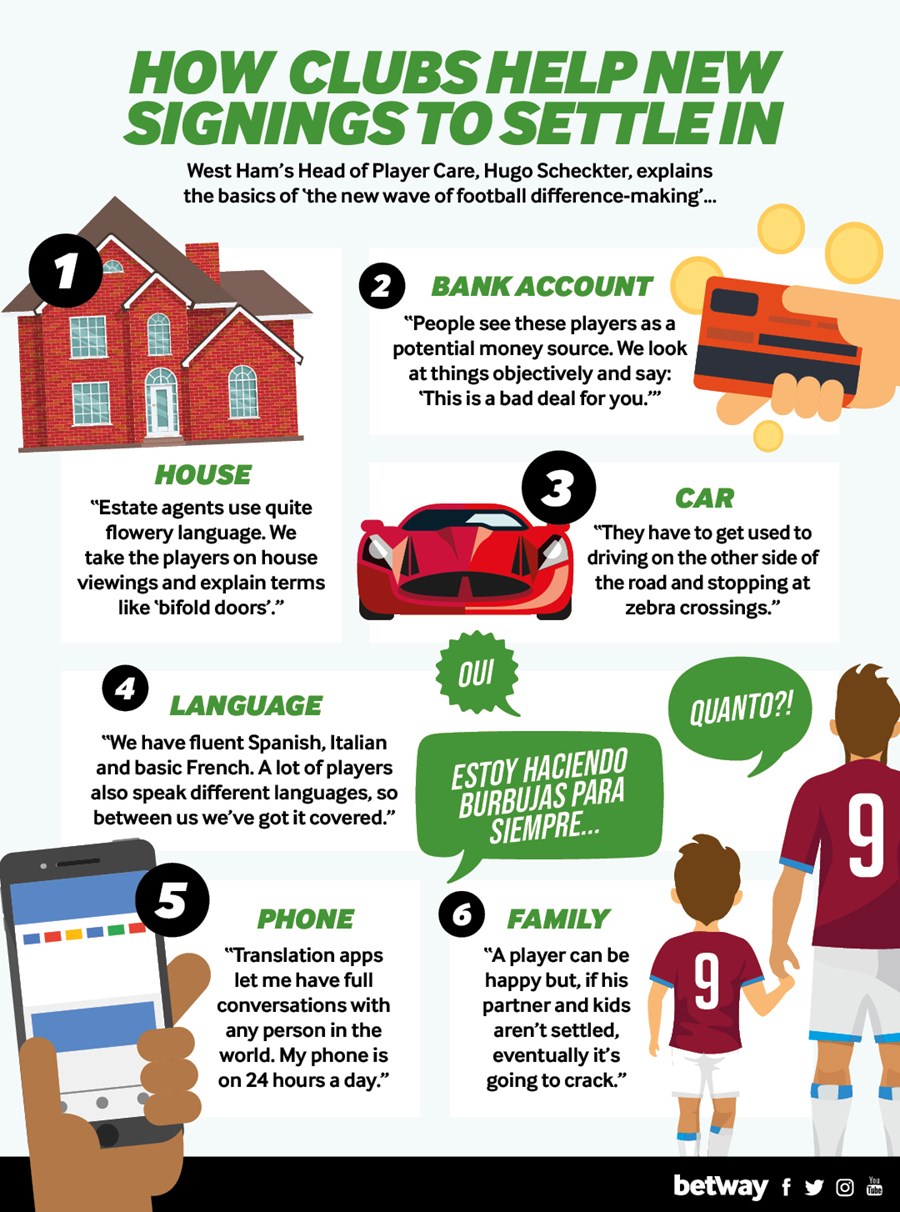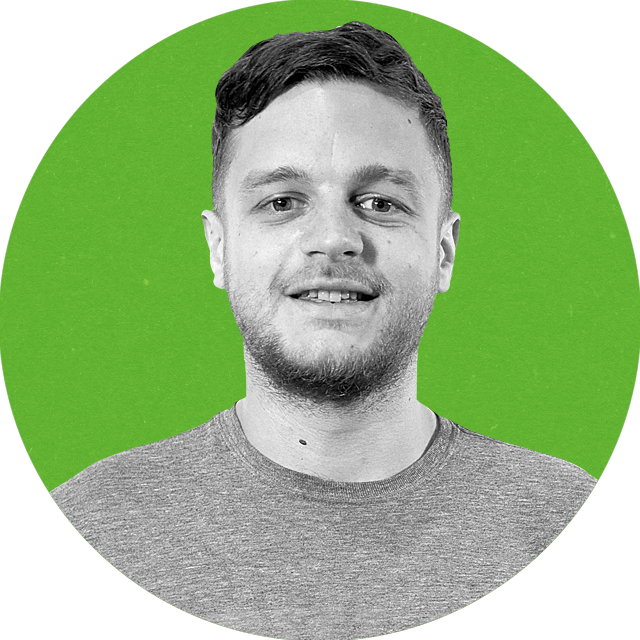West Ham's Head of Player Care on helping new signings settle

Hugo Scheckter discusses how language, council tax and zebra crossings are all crucial in what he describes as 'the new wave of football difference-making'.
It’s 2pm in the canteen at West Ham’s Rush Green training ground. Plates are clattering, as players chat in between mouthfuls of their post-training session meal of lamb cutlets or chicken kebabs.
Andriy Yarmolenko, who has been at the club little over a week after joining from Borussia Dortmund, sits on his own FaceTiming his family.
Hugo Scheckter, West Ham’s Head of Player Care, walks over to his table and asks if he needs anything. It’s a small gesture, but one that the new signing clearly appreciates.
“I believe that player care is the new wave of difference-making in football,” says Scheckter as he takes his seat for this interview a couple of tables away.
“In the ‘90s it was medicine, more recently it’s been video analysis, and I think player care is the next area where clubs can really get an advantage over each other.
“By having players who are set up properly and looked after, it means they can focus on nothing but football as soon as possible after they walk through the door.”
Scheckter joined West Ham in March from Southampton, and has spent the summer restructuring his team, recruiting Emma Bacon, whose background is in women’s rugby, and Barney Bossom, a linguist, to provide necessary support.
“We’re trying to make sure that everything is not just taken care of, but taken care of in the right way,” says Scheckter.
“It’s our ambition to have one of the best player care departments in the next two years.”
It has been a busy summer for the Hammers, who are for a top-six finish in the latest Premier League betting, with the arrival of 16 new faces: seven players, a new manager in Manuel Pellegrini, coaching staff, scouts and a director of football.
“That is more than I've ever dealt with, I'm more used to about five or six,” says Scheckter.
A clearly defined plan, however, ensures that every single one has been well looked after.
“We try and sort the six main things: the house, the car, the bank account, the family, the phone and languages. Once we’ve got those basic things, everything else falls into place,” says Scheckter.
“Player care sometimes gets seen as like running a concierge or nanny service.
“But if you or I moved to a foreign country aged 20, we wouldn’t know what to do because we haven’t grown up in that environment.
“When someone comes here, we need to make sure that everything's explained.
“Someone like Fabian Balbuena, for example, has never lived outside of South America.
“There’s so much different stuff that they have to get used to, it’s about trying to work out the gaps in their knowledge.
“Whether it's council tax – we're the only country in the modern world that has a council tax-style system – or even knowing you need to stop at a zebra crossing.
“A lot of the time, we're just translating English into English, when people speak with an accent or use flowery language, so they're not confused and know what they're signing up to.
“We’re there to protect them, as well, because there are a lot of people who see these players as a potential money source.”

The importance of communication is made clear as Issa Diop – a summer signing from Toulouse – apologetically interrupts to ask which of the taxis outside the training ground is there to pick him up.
Scheckter drops into French to let the defender confirm his journey home.
“We go for some of the best players in the world, some of them do speak English and some don't,” says Scheckter.
“We found that even in a couple of weeks of being here, players pick up the language really quickly.
“Barney [Bossom] speaks Italian and Spanish fluently and I have basic French, so unless we're signing a player from North Korea, we've got it covered within the squad.”
Scheckter has lived abroad himself, having studied at university in Washington DC before working with then NASL team Indy Eleven in Indianapolis, IN.
“I’ve moved four or five times in my life, so I know their feelings of isolation and confusion when you go somewhere new,” he says.
“I think the biggest skill is empathy and understanding that, just because a problem doesn't sound serious, it might be to them.
That compassion and understanding means that Scheckter’s work is far from done, even after players have settled at the club.
“The old-fashioned way of looking at player care is just with the player itself, but when you've got someone with a wife and kids, you're probably looking at a year or two before they really feel at home.
“A player can be really happy, but if the family's not settled, it won't work out. Eventually it's going to crack.
“It’s a full-on job – my phone is on 24 hours a day.”
It’s through that care and attention that Scheckter ensures players feel valued.
“I treat the players as people, and I think that’s how you get the best out of them,” he says.
“Hopefully they feel that love from the club. It sounds a bit hippyish but, to feel some love back from your employer no matter where you work is really important.
“To have a player they come and shake your hand, look you in the eye and say, 'I couldn't have done it without you guys.'
“That, to me, is a job well done.”





































